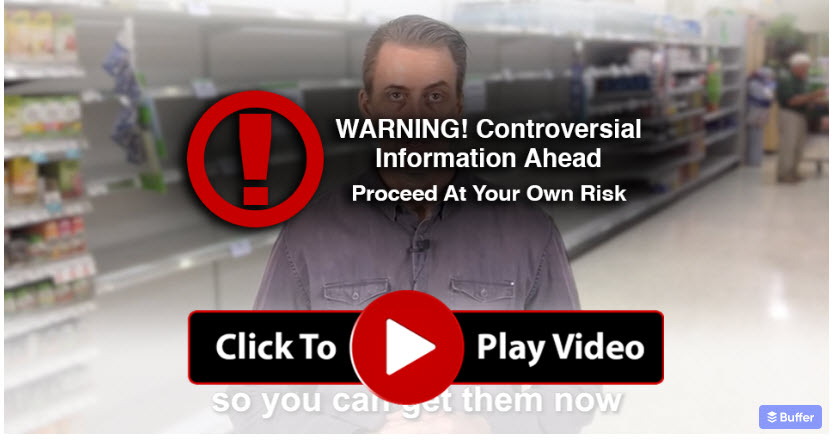In this article, you will discover essential safety precautions to keep in mind when facing the potential threat of hurricanes. Your safety and well-being are of utmost importance, and understanding how to stay prepared and protected during these powerful storms is crucial. From securing your home to assembling an emergency kit, we will guide you through the necessary actions to ensure your safety and peace of mind throughout hurricane season. So, let’s embark on this journey together and equip ourselves with the knowledge needed to navigate through these challenging weather events with confidence.
Preparing Your Home
Secure and reinforce doors and windows
When preparing your home for a hurricane, it is essential to secure and reinforce your doors and windows. This can help prevent them from being damaged or blown open by strong winds. Make sure all doors have sturdy locks and consider installing reinforced windows or storm shutters. Additionally, reinforce garage doors and sliding glass doors to minimize potential damage.
Trim trees and remove loose branches
Another critical step in preparing your home for a hurricane is to trim trees and remove any loose branches. Strong winds can easily knock down trees and branches, causing damage to your property or neighboring properties. By trimming your trees and removing loose branches, you can minimize the risk of them becoming hazards during the storm.
Secure outdoor furniture and objects
To prevent damage to your outdoor furniture and objects, it is important to secure them before the hurricane arrives. Strong winds can turn these items into dangerous projectiles, posing a risk to your property and others. Bring them indoors or store them in a secure location, such as a shed or garage. If you are unable to bring them inside, consider tying them down or using heavy objects to anchor them.
Cover windows with storm shutters or plywood
Covering your windows with storm shutters or plywood is an effective way to protect them from flying debris during a hurricane. Storm shutters are specifically designed to withstand strong winds and can be easily closed before the storm. If you don’t have storm shutters, using plywood is a cost-effective alternative. Measure the windows in advance and secure the plywood with screws or nails, ensuring a tight fit.
Consider installing hurricane-resistant windows
For long-term hurricane preparedness, consider installing hurricane-resistant windows. These windows are designed to withstand high winds and impact from debris, providing an additional layer of protection for your home. While it may be a significant investment, it can provide peace of mind knowing that your windows are built to withstand hurricane conditions.
Creating a Disaster Kit
Gather essential supplies
When preparing for a hurricane, it is crucial to gather essential supplies for your disaster kit. This kit should contain items that will sustain you and your family for at least three days in the event of an emergency. Some essential supplies to include are non-perishable food items, drinking water, flashlights, batteries, a manual can opener, a first aid kit, and extra blankets.
Include enough food and water for at least three days
Food and water are essential for your survival during and after a hurricane. Make sure to include enough non-perishable food items, such as canned goods, energy bars, and dry snacks, to last your family for at least three days. Additionally, store one gallon of water per person per day to ensure an adequate water supply.
Prepare a first aid kit
A well-stocked first aid kit is crucial in any emergency situation. Make sure your kit includes essentials like band-aids, sterile gauze pads, adhesive tape, antiseptic wipes, pain relievers, and any necessary prescription medications. It is also important to have a manual with basic medical instructions and emergency contact numbers.
Include necessary medications
If you or your family members have any regular medications, make sure to include a sufficient supply in your disaster kit. It is recommended to have at least a one-week supply of any necessary medications. Keep them in a waterproof container to prevent damage.
Pack important documents and cash
In the event of an emergency, it is important to have copies of important documents readily available. These may include identification documents, insurance policies, medical records, and proof of address. Keep these documents in a waterproof container or store them digitally in a secure location. Additionally, it is advisable to have some cash on hand, as ATMs and credit card machines may not be functioning during power outages.
Developing an Emergency Plan
Identify evacuation routes
One of the most crucial aspects of hurricane preparedness is identifying evacuation routes. Familiarize yourself with the evacuation routes in your area and plan multiple routes in case some are blocked or congested. Have maps readily available, or use GPS navigation systems that can provide alternative routes if necessary.

Designate a meeting point for family members
In the event of an evacuation, it is important to have a designated meeting point for your family members. This can be a relative’s house, a shelter, or any other safe location away from the storm’s path. Discuss the meeting point with your family in advance and ensure that everyone knows the address and the best route to reach it.
Establish communication methods
Communication is key during any emergency situation. Establish a plan for how you will communicate with your family members if you become separated during a hurricane. Share contact information and determine a preferred method of communication, whether it be phone calls, text messages, or a designated messaging app. It is also important to designate an out-of-state contact who can serve as a central point of communication.
Know emergency contact numbers
Make sure to have a list of emergency contact numbers readily available in case you need to reach out for assistance during a hurricane. This list should include local authorities, emergency services, your insurance company, and any relevant utility companies. Store these numbers in your phone, write them down in your disaster kit, and share them with your family members.
Plan for the needs of pets or livestock
If you have pets or livestock, it is vital to plan for their needs during a hurricane. Make sure to have enough food, water, and supplies to sustain them for several days. If you need to evacuate, make arrangements for their care in advance. Identify pet-friendly shelters or boarding facilities and locate veterinary clinics outside the hurricane zone. Keep their identification tags and any necessary documents easily accessible.
Staying Informed
Stay updated with local weather reports
When a hurricane is approaching, it is essential to stay updated with local weather reports. Follow reputable sources such as the National Weather Service or local meteorological agencies for the most accurate and up-to-date information. Listen to weather updates on the radio or television, or use weather apps on your smartphone for real-time updates.
Listen to emergency alerts and warnings
During a hurricane, it is crucial to listen to emergency alerts and warnings issued by local authorities. These alerts will provide important information regarding evacuation orders, safety instructions, and any potential threats. Stay tuned to local radio or television stations, and have a battery-operated radio on hand as a backup communication source.
Follow instructions from local authorities
Local authorities are trained to handle emergency situations and have the knowledge and experience to guide you safely through a hurricane. It is important to follow their instructions and advice for your own safety. If they advise evacuation, take it seriously and evacuate promptly. Cooperate with any mandatory evacuations and follow designated routes as instructed.
Use smartphone apps for real-time information
In today’s digital age, smartphone apps can provide real-time information on hurricanes. There are several reliable apps available that offer hurricane tracking, weather updates, and emergency alerts. Download and familiarize yourself with these apps in advance so that you can stay informed even if power is lost.
Monitor social media channels
Social media can also be a valuable source of information during a hurricane. Many local authorities and emergency services use social media platforms to provide updates and instructions. Follow reputable accounts and official channels to ensure you are receiving accurate and timely information. However, it is important to be cautious and rely on official sources for critical information.
During the Storm
Stay indoors and away from windows
When a hurricane is directly impacting your area, it is crucial to stay indoors and away from windows. Windows can shatter under the force of strong winds and flying debris, causing significant harm. Stay in an interior room on the lower level of your home, preferably one without windows. If possible, reinforce the room with mattresses or other objects for added protection.
Use a battery-operated radio for information
During a power outage, a battery-operated radio becomes an essential tool for staying informed. Tune in to local news stations or emergency channels to receive updates and instructions from authorities. Make sure to have spare batteries on hand to ensure the radio remains functional throughout the storm.

Avoid using candles and other open flames
Never use candles or other open flames during a hurricane. They pose a significant fire hazard, especially if there are gas leaks or other damaged utilities. Instead, rely on flashlights or battery-operated lanterns for illumination. Make sure to have an ample supply of batteries to keep these lights functioning.
Turn off utilities if instructed to do so
In certain situations, local authorities may instruct you to turn off your utilities, such as gas, water, and electricity. Follow their instructions carefully, as this can help prevent further damage or potential dangers. If you are unsure how to safely turn off your utilities, contact your utility providers for guidance in advance.
Prepare to move to a safe location if necessary
If conditions worsen during a hurricane and authorities issue evacuation orders, be prepared to move to a safe location. Have your disaster kit readily accessible, including important documents, medications, and supplies. Follow designated evacuation routes and go to the designated meeting point you established with your family earlier.
Evacuation Tips
Follow the evacuation orders promptly
When authorities issue evacuation orders, it is crucial to follow them promptly. Delaying evacuation can put your life and the lives of others at risk. Take evacuation orders seriously, as they are issued to ensure your safety in the face of potential danger. Leave as soon as possible and do not attempt to ride out the storm if it is unsafe to do so.
Take your disaster kit and important documents
Before evacuating, make sure to grab your disaster kit and important documents. Your disaster kit should contain essential supplies to sustain you and your family, including food, water, medications, and first aid items. Additionally, gather important documents such as identification, insurance policies, and medical records. Keep them in a waterproof container and take them with you.
Inform family and friends of your whereabouts
When evacuating, it is important to inform your family and friends of your whereabouts. Reach out to them and let them know you are leaving and where you plan to go. Provide them with any relevant contact information, such as your phone number or the address of your evacuation destination. This way, they can check in on you and know that you are safe.
Secure your home before leaving
Before leaving your home, take steps to secure it as best as possible. Close and lock all doors and windows, and shut off any utilities if instructed to do so. If time permits, move valuable items to higher ground or away from windows. Clear your yard of any objects that could become projectiles in strong winds. Taking these precautions can help minimize potential damage during the storm.
Follow designated evacuation routes
When evacuating, it is important to follow the designated evacuation routes. These routes are carefully planned to ensure a smooth and efficient flow of traffic away from the affected area. Do not attempt to take shortcuts or create your own route, as this can lead to delays and confusion. Follow the instructions and signage provided by local authorities to ensure a safe and timely evacuation.
Protecting Your Health
Avoid contact with floodwater
Floodwater can be contaminated and pose serious health risks. Avoid contact with floodwater as much as possible. It may contain bacteria, viruses, chemicals, or other hazardous substances that can cause illness. If you must come into contact with floodwater, wear protective gear such as waterproof boots and gloves.
Use protective gear when cleaning up after the storm
After the storm has passed, it is important to use protective gear when cleaning up any debris or damage. Wear gloves, sturdy boots, long-sleeved shirts, and pants to protect yourself from potential injuries or exposure to hazardous materials. Use caution when handling damaged or sharp objects, and be aware of potential electrical hazards.
Prevent carbon monoxide poisoning when using generators
If you plan to use a generator during a power outage, it is essential to prevent carbon monoxide poisoning. Never operate a generator indoors or in an enclosed space, as it can release deadly carbon monoxide gas. Place the generator outside, at least 20 feet away from any windows, doors, or vents. Install battery-operated carbon monoxide detectors in your home to provide an early warning of any potential leaks.

Seek medical attention for injuries or illness
If you or your family members experience any injuries or illness during or after a hurricane, seek medical attention promptly. Do not delay seeking medical care for serious injuries or symptoms. Contact emergency services or visit the nearest hospital or medical facility for professional assessment and treatment.
Take care of mental health during and after the storm
Hurricanes can be stressful and emotionally challenging experiences. It is important to take care of your mental health during and after the storm. Reach out to loved ones for support, and utilize coping strategies such as practicing relaxation techniques, engaging in physical activities, or seeking professional help if needed. Be patient with yourself and those around you as everyone processes the event differently.
Safety after the Storm
Beware of hazards when returning home
When returning to your home after a hurricane, be aware of potential hazards. Look out for downed power lines, damaged electrical equipment, or unstable structures. Avoid unstable buildings or structures that may have suffered severe damage during the storm. Use caution when walking on or inspecting your property, as debris may pose trip and fall hazards.
Avoid downed power lines and damaged electrical equipment
Never approach or touch downed power lines or damaged electrical equipment. They may still be live and pose a significant risk of electrocution. Contact your local utility provider to report any downed power lines or electrical hazards for immediate attention and assistance.
Inspect and assess damage to your property
After the storm, it is important to inspect and assess the damage to your property. Start with a visual inspection of the exterior and take note of any significant damage. Check for roof damage, broken windows, or structural issues. Document the damage with photographs and contact your insurance company to begin the claims process, if necessary.
Clean and disinfect areas affected by floodwater
If your home has been affected by floodwater, it is crucial to clean and disinfect the affected areas properly. Use a bleach solution to sanitize surfaces and prevent the growth of mold and bacteria. Remove any water-damaged materials, such as carpeting or drywall, to prevent further damage and potential health hazards. Follow proper safety precautions when handling and disposing of these materials.
Report any utility issues to the appropriate authorities
If you encounter any utility issues, such as gas leaks, water leaks, or power outages, report them to the appropriate authorities. These issues require immediate attention and can pose significant risks to your safety and the safety of others. Contact your utility providers or emergency services to notify them of the problem and follow their instructions.
Preparing for Power Outages
Keep a supply of batteries and flashlights
Power outages are common during hurricanes, so it is important to keep a sufficient supply of batteries and flashlights on hand. Ensure you have multiple flashlights and spare batteries readily accessible throughout your home. This will provide reliable lighting sources during extended power outages.
Have alternative sources of power such as generators
Having alternative sources of power, such as generators, can help you cope with power outages during a hurricane. A generator can power essential appliances and recharge important devices. Ensure your generator is properly installed and follows safety guidelines to prevent carbon monoxide poisoning and other hazards. Only use generators outdoors and away from windows, vents, or openings.
Unplug appliances and electronics
Before a hurricane hits and during a power outage, unplug your appliances and electronics to protect them from power surges or electrical damage. This includes TVs, computers, refrigerators, and other sensitive equipment. Unplugging these devices will prevent potential damage when power is restored.
Avoid opening the refrigerator or freezer
During a power outage, it is important to avoid opening the refrigerator or freezer unnecessarily. Keeping the doors closed as much as possible will help maintain the cold temperature inside, preserving the food for a longer period. Use a food thermometer to check the temperature before consuming any perishable items after power is restored.
Use caution when using candles or other alternative lighting
If you need alternative lighting during a power outage, exercise caution when using candles or other open flames. Never leave lit candles unattended and keep them away from flammable materials. Battery-powered LED candles or lanterns can be a safer alternative for providing light without the risk of fire.
Protecting Your Pets
Ensure your pets have identification tags
Before a hurricane strikes, ensure that your pets have proper identification tags. This includes your pet’s name and your current contact information. An identification tag can increase the chances of being reunited with your pet if they become lost during the chaos of a storm.
Prepare a disaster kit for your pets
Just like you would prepare a disaster kit for yourself and your family, it is essential to have a disaster kit for your pets. This should include several days’ worth of food, water, medications, and any necessary pet supplies, such as litter or bedding. Additionally, pack their identification documents, vaccination records, and a recent photo in case they get lost.
Bring pets indoors before the storm
When a hurricane is approaching, it is important to bring your pets indoors to keep them safe. Secure them in a designated area of your home where they feel comfortable and provide them with food, water, and any necessary medications. If you have larger animals, such as horses or livestock, make sure they have access to a secure shelter to protect them from the storm’s elements.
Don’t leave pets behind during evacuation
If you are evacuating, never leave your pets behind. They are part of your family and rely on you for their safety and well-being. Many evacuation shelters now accept pets, but it is important to check in advance for pet-friendly options. If you are unable to find a pet-friendly shelter, reach out to local animal welfare organizations or veterinarians for assistance and advice.
Have a plan for temporary pet care if needed
In some situations, you may need to make temporary arrangements for your pets if you are unable to care for them during a hurricane. Establish a plan in advance with friends, family, or boarding facilities who can temporarily care for your pets if necessary. Make sure they are aware of your pet’s needs and have access to their food and medications.
By following these safety precautions and being prepared, you can minimize the risks associated with hurricanes and ensure the safety of yourself, your loved ones, and your pets. Take the necessary steps to secure your home, gather essential supplies, develop an emergency plan, stay informed, and protect your health. Remember, being prepared is the best defense against the unpredictable forces of nature.






